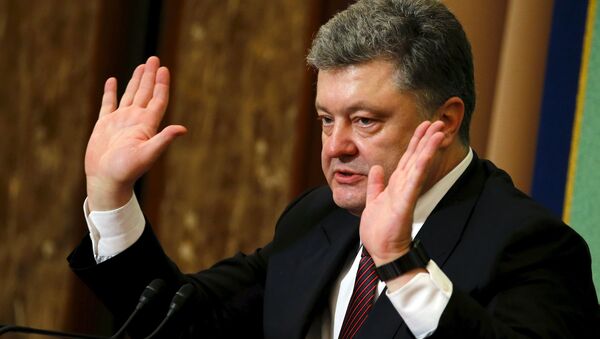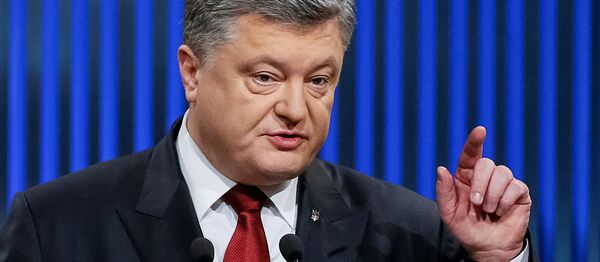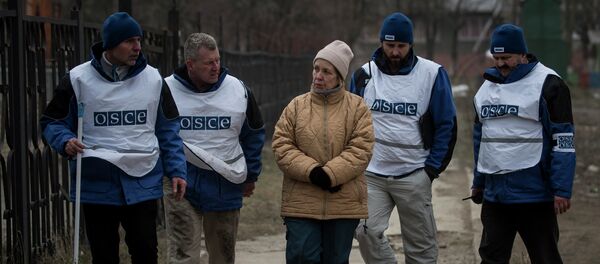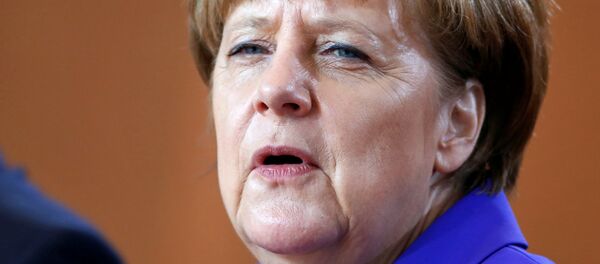Ukraine's future is hanging in the balance given the apparent inability of the country's oligarchic and clan system to transform "into anything more transparent" and "rules-based," Yegor Vasylyev, a Ukraine-based analyst specializing in politics and transition of post-Soviet states notes.
"The new Ukrainian authorities failed to give a satisfactory response to the stockpiling questions of the voters. They promised a lot: to finish the anti-terrorist operation within hours, to fight tax avoidance and the use of off-shore tax havens, effective anti-corruption lustration of law-enforcement bodies, a war with oligarchs and a visa-free regime with the Schengen zone within the first year of Poroshenko's presidency. None of the promises have been fulfilled," Vasylyev writes in his article for New Eastern Europe magazine.
Curiously enough, the most influential politicians of the first generation of post-Orange Revolution officials were united by their background as children, step-sons or spouses of the Soviet nomenclature (for instance, Yuriy Lutsenko, David Zhvaniya, Oleksandr Tretyakov, Petro Poroshenko or Yuliya Tymoshenko) and former Komsomol activists, Vasylyev reveals.
"The first-rank 'orange' officials included Anatoliy Matvienko, once the first secretary of the Ukrainian Komsomol, the late Oleksandr Zinchenko — the second secretary of all-Soviet Komsomol and Mykola Martynenko — once a secretary of Kiev Komsomol… The most ambitious members of the 'Komsomol United' team, Poroshenko, Martynenko, Zhvaniya and Tretyakov, have been commonly referred to as President Yushenko's 'Lovely Friends'," the analyst writes.
Believe it or not, the second Maidan, to some extent, has brought 'Komsomol United' back to power.
"The second Maidan once again resulted in the return of informal post-Soviet models, and the current decision-makers represent a slightly westernized version of their earlier counterparts. The rotation has been supported by the mass change of colors on the part of the Ukrainian elite," the analyst emphasizes.
Whom exactly does the Poroshenko clan comprise?
The analyst points out that it includes Poroshenko's army mate and business partner Ihor Kononenko (formerly, a secretary of Komsomol at one of Kiev's institutes), Borys Lozhkin (who started his career in Kharkiv Komsomol newspaper), Anatoliy Matvienko and his nephew Sergiy Berezenko, the former secretary of Lviv Komsomol — Ihor Gryniv amongst others.
So far, Poroshenko's presidency is characterized by maneuvering between Ukrainian oligarchy, his own clan and highly populist rhetoric, the analyst stresses. Predictably, it does not add to the ongoing fight against corruption and nepotism which are still flourishing in the country.
In this context the appointment of Poroshenko's longstanding ally Volodymyr Groysman as Ukraine's Prime Minister is yet another attempt by the Ukrainian president to bolster his clan and concentrate power in his own hands.
It is hardly surprising that anti-corruption reforms have so far failed in Ukraine that sees little if any rotation of elites at the helm of the country.
Vasylyev's stance is echoed by American scholars Neil A. Abrams and M. Steven Fish.
"Since 1991, when Ukraine gained independence from the Soviet Union, a powerful political and business establishment has wielded uninterrupted control of the Ukrainian state. Not even popular uprisings in 2004 and 2014 or changes of executive power in 1994, 2005, 2010 and 2014 managed to dislodge this elite," Abrams and Fish wrote in their May article for the Washington Post.
Needless to say, Ukraine's inability to tackle the corruption issue and carry out a series of political and economic reforms are sparking growing concerns and even irritation in the EU.
The results of the Dutch Ukraine-European Union Association Agreement referendum in April 2016 spoke louder than words: almost 61 percent of votes were against the Approval Act.
Furthermore, with the Euroskeptic movement on the rise in Europe, it is highly unlikely that Ukraine will join the bloc in the foreseeable future.
"As the issue of post-communist transition is off the table, the question which remains is whether a transformation of Ukraine's oligarchic and clan system into anything more transparent and rules-based is possible. For the moment, the answer is far from 'yes'," Vasylyev stresses.






